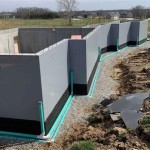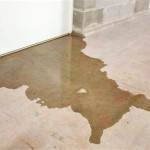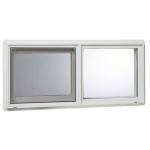Do You Insulate Basement Walls?
For many homeowners, figuring out how to insulate basement walls can be an overwhelming task. After all, there are several options, and the one you choose depends on your specific situation. This article will discuss the essential aspects of insulating basement walls, helping you make an informed decision for your home.
Why Insulate Basement Walls? Before discussing insulation options, it's crucial to understand why insulating basement walls is essential in the first place. Here are a few key reasons:
- Reduces heat loss: Insulation helps trap heat in the basement during the winter, making your home more comfortable and reducing energy bills.
- Prevents moisture problems: Cold basement walls can lead to condensation, which can cause mold and mildew growth. Insulation helps keep the walls warm and dry, preventing these issues.
- Improves home value: A well-insulated basement can increase the value of your home, especially if you're considering finishing it in the future.
Types of Basement Wall Insulation: Now that you understand the importance of insulating basement walls, let's look at the different types of insulation available:
- Batt insulation: Batt insulation is made of fiberglass or mineral wool and comes in pre-cut panels. It's easy to install and suitable for basements with studs.
- Rigid foam insulation: Rigid foam insulation is made of polystyrene or polyurethane and comes in sheets. It's more expensive than batt insulation but provides excellent insulation value and can be used in basements with uneven walls.
- Spray foam insulation: Spray foam insulation is applied as a liquid that expands and hardens into a foam. It's great for filling small gaps and cracks and can provide excellent insulation value.
Choosing the Right Insulation: The best type of insulation for your basement walls depends on various factors, including the condition of your walls, your budget, and your DIY skills. Consult a professional if you're unsure which type of insulation is right for you.
Installing Basement Wall Insulation: Installing basement wall insulation is a job best left to professionals, especially if you're using spray foam insulation. However, if you're using batt or rigid foam insulation, you may be able to DIY it with some basic tools and skills.
Conclusion: Insulating your basement walls is a smart investment that can save you money on energy bills, improve your home's comfort, and increase its value. By understanding the different types of insulation and the factors to consider when choosing, you can make the best decision for your home.

Three Ways To Insulate A Basement Wall Fine Homebuilding

How To Insulate A Basement Wall Greenbuildingadvisor

How To Insulate Basement Walls True Value

How To Insulate Your Basement S Concrete Walls The Seattle Times

How To Insulate Your Basement Like A Pro

Basement Insulation Maryland Northern Va Call Today

Should I Insulate My Basement Constellation

Inorganic Basement Wall Panels In Stamford Norwalk West Hartford By Expert Contractors To Beautiful Insulated

Insulating Basement Walls With Fiberglass Batting Semigloss Design

Healthy Basement Insulation Systems Quality Built Basements Llc








